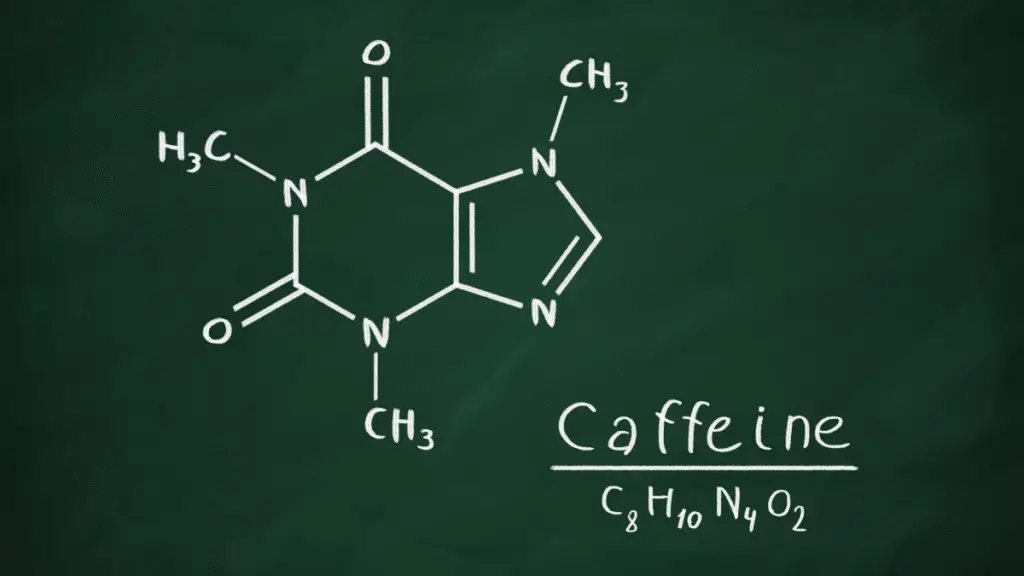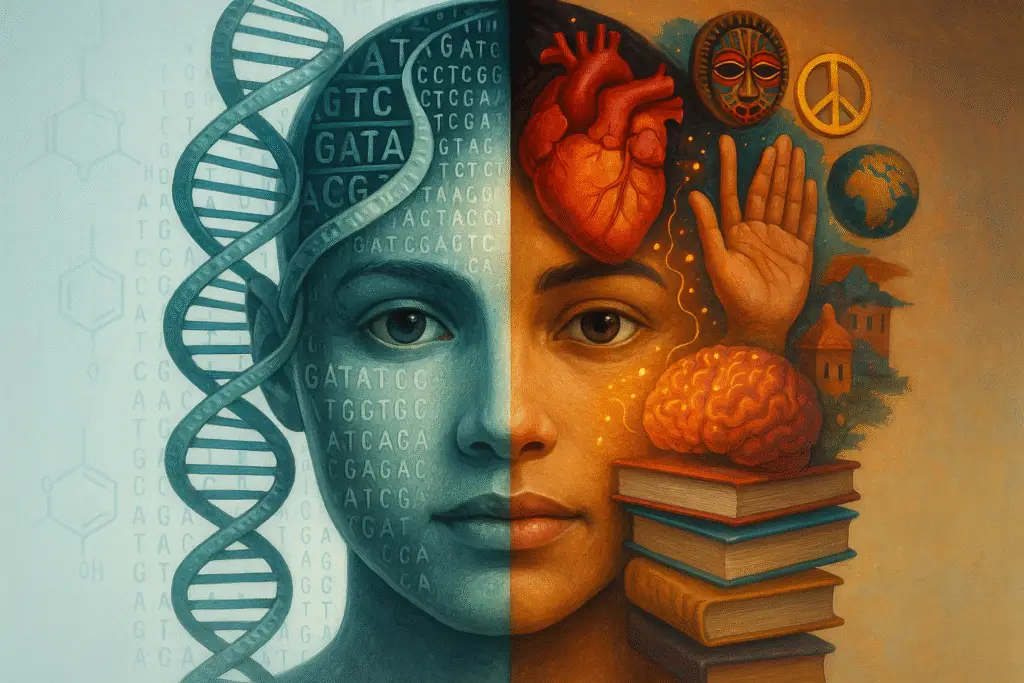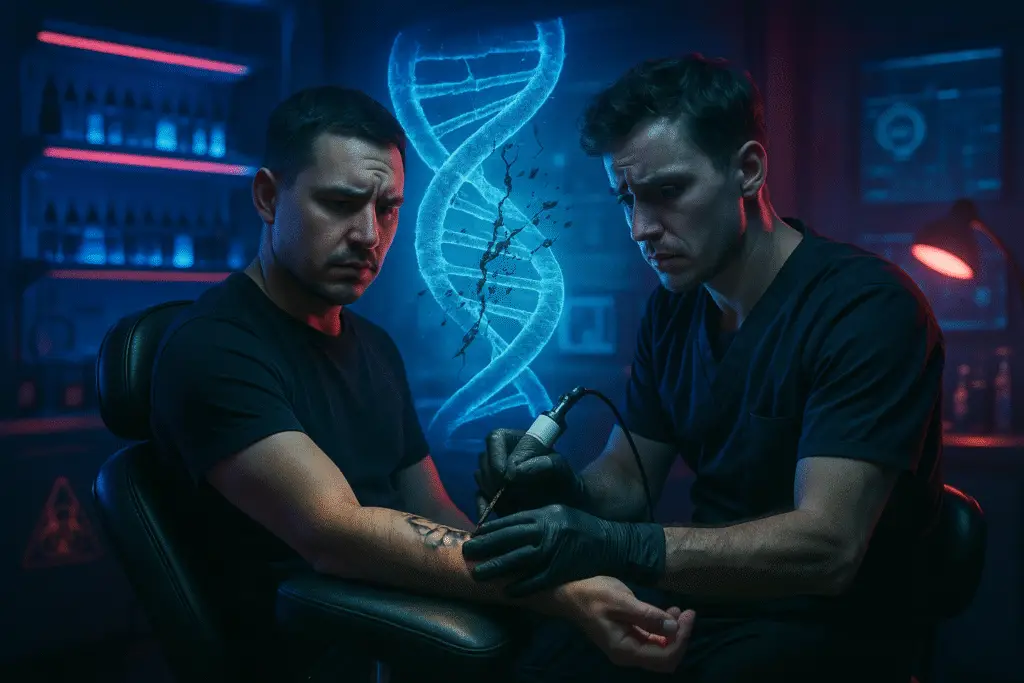Approximately 36% of people start their day with a cup of coffee, while 80% of Indians start their day with tea. Huge right!
In recent times, anywhere you look—offices, classrooms, living rooms… You will find people holding a cup of coffee, a can of cola, or an energy drink.
These drinks contain caffeine! A compound that isn’t good for us!
The caffeine addiction is so real that people nowadays cannot even start their day without a cup of coffee. And especially in our Indian households, the first thing they want as soon as they wake up is their morning tea or coffee, that too on an empty stomach.
Do you think that’s healthy? No, it isn’t.
Let me tell you, it isn’t safe for your DNA either. I know what you are thinking: how can caffeine be harmful to the DNA? right?
Read this article and you will get your answer.
In this article, for a better understanding of the genetic effects of overconsumption of coffee, I will break down some studies and research that show how caffeine can damage our DNA and alter our genes.
Stay tuned.
Key Topics:
What is caffeine?
Caffeine hits the brain and increases alertness and energy and boom… sleep gone! Chemically, it is 1, 3, 7- Trimethylpurine- 2, 6- dione, a naturally occurring stimulator,
It is present in coffee beans, tea leaves and cocoa beans, naturally. It is present in drinks like tea, coffee and energy drinks, and in chocolate too.
Studies showed that overconsumption of caffeine isn’t good for our health.
Firstly, tea and coffee are the most dehydrating drinks and having that on an empty stomach, I don’t think it’s a good habit at all. Secondly, most of us don’t realise that a daily caffeine hit is something that could be damaging our DNA.
Just like our daily tech habits or even cooking habits, which damage our DNA.
Let’s see some studies on model organisms.
Scientific studies on model organisms:
Ryoji Ishida and team found that caffeine causes DNA strand breakage in Chinese hamster ovary cells. When scientists exposed the Chinese hamster ovary cells to different concentrations of caffeine, using a sensitive method called alkaline elution, they found that caffeine alone, without any other chemicals, can cause breaks in cellular DNA.
Interestingly, their further observations showed that despite the DNA damage, the cell can still survive. Only DNA damage is included.
Another study published in Elsevier showed the effect of caffeine on homologous recombination, a part of our DNA repair system. Scientists treated the mammalian cells with 5mM caffeine and reported the effect.
They also found that it substantially impacts the P53 gene, our genome’s guardian that controls the cell death process.
The scientific evaluation is stated here.
They found out that caffeine caused cells to stall before G2/M checkpoint, which means just before cell division. This triggered a p53-mediated response, which often leads to programmed cell death – apoptosis, when the damage is beyond repair.
They also observed that caffeine resulted in a decrease in the levels of RAD51 and BRCA2 proteins. These proteins are very crucial for DNA repair via homologous recombination. And without these proteins, the later stages of repair can be stalled.
Another thing they observed was that caffeine led to an increase in the nascent DNA synthesis and made chromatin more accessible, but this did not result in proper, full recombination products.
Thus, we can conclude that prolonged caffeine exposure stalls the cell cycle, induces a p53-mediated apoptotic response and down-regulates critical Homologous Recombination proteins. For reasons discussed, it stimulates the early steps of homologous recombination; however, it can’t complete it.
Now let’s see some other direct studies.
Caffeine and DNA damage:
In a study published in Mutation Research, scientists explored how caffeine can interfere with DNA metabolism. They found that caffeine can disrupt essential cellular processes like DNA replication, repair, and checkpoint control.
Okay, how does this matter, right?
Let me explain,
When our cells undergo DNA damage, they take the help of certain proteins and signalling pathways to stop the cell cycle so the repair system can repair the damaged part.
However, caffeine affects the activity of such proteins, their signals and ATM/ATK kinase pathways. Both of these signalling pathways are very crucial for responding to DNA strand breaks and help repair.
When these pathways are messed up by caffeine, chances are that the damaged DNA may go unrepaired, which increases the risk of mutations and long-term genetic instability.
Caffeine and epigenetic changes:
According to another study published in the journal Molecules, the caffeine and other compounds present in coffee and energy drinks, that are chlorogenic acid and caffeic acid, which hits us or say give us energy, also interact with our epigenome and alter it.
Meaning they change how genes are switched on or off without changing the DNA sequence.
Researchers found changes in the DNA methylation, histone modifications, and non-coding RNA expression.
In addition, studies also reveal that excess coffee consumption during pregnancy alters the epigenetic profile and results in negative effects on offspring.
We have already published an article on the habits of mothers that should be avoided during pregnancy to keep the fetal DNA healthy. You can check it out on our website.
Key takeaways:
- Caffeine overconsumption isn’t good for our health and DNA.
- It damages our DNA.
- It alters gene expression patterns (epigenetic changes).
- It affects cellular activities such as cell division, apoptosis and replication.
Wrapping up
I am sure now you know how sipping coffee all day long, having cola with your meal every day and sipping the so-called energy drinks before your heavy workout can damage so many crucial pathways and processes in your body, resulting in DNA damage.
I know caffeine has embedded itself in our lifestyles, but we need to pause and think about our cells and DNA as well.
I am not suggesting you remove coffee or these caffeinated drinks from your diet altogether, but overconsumption can be fatal.
Therefore, there is this one thing that we should always keep in mind, that moderation is the key, have your beverages in moderation, include healthy beverages in your diet and you are good to go.
Resources:
- Ding, Qi, et al. “The Epigenetic Effects of Coffee.” Molecules, vol. 28, no. 4, 1 Jan. 2023, p. 1770, https://doi.org/10.3390/molecules28041770.
- Kaufmann, W. “Caffeine and Human DNA Metabolism: The Magic and the Mystery.” Mutation Research/Fundamental and Molecular Mechanisms of Mutagenesis, vol. 532, no. 1-2, 27 Nov. 2003, pp. 85–102, https://doi.org/10.1016/j.mrfmmm.2003.08.012.
- Magwood, Alissa C., et al. “The Dichotomous Effects of Caffeine on Homologous Recombination in Mammalian Cells.” DNA Repair, vol. 88, Apr. 2020, p. 102805, https://doi.org/10.1016/j.dnarep.2020.102805.
- Yang, Amy, et al. “Genetics of Caffeine Consumption and Responses to Caffeine.” Psychopharmacology, vol. 211, no. 3, 9 June 2010, pp. 245–257, www.ncbi.nlm.nih.gov/pmc/articles/PMC4242593/.


